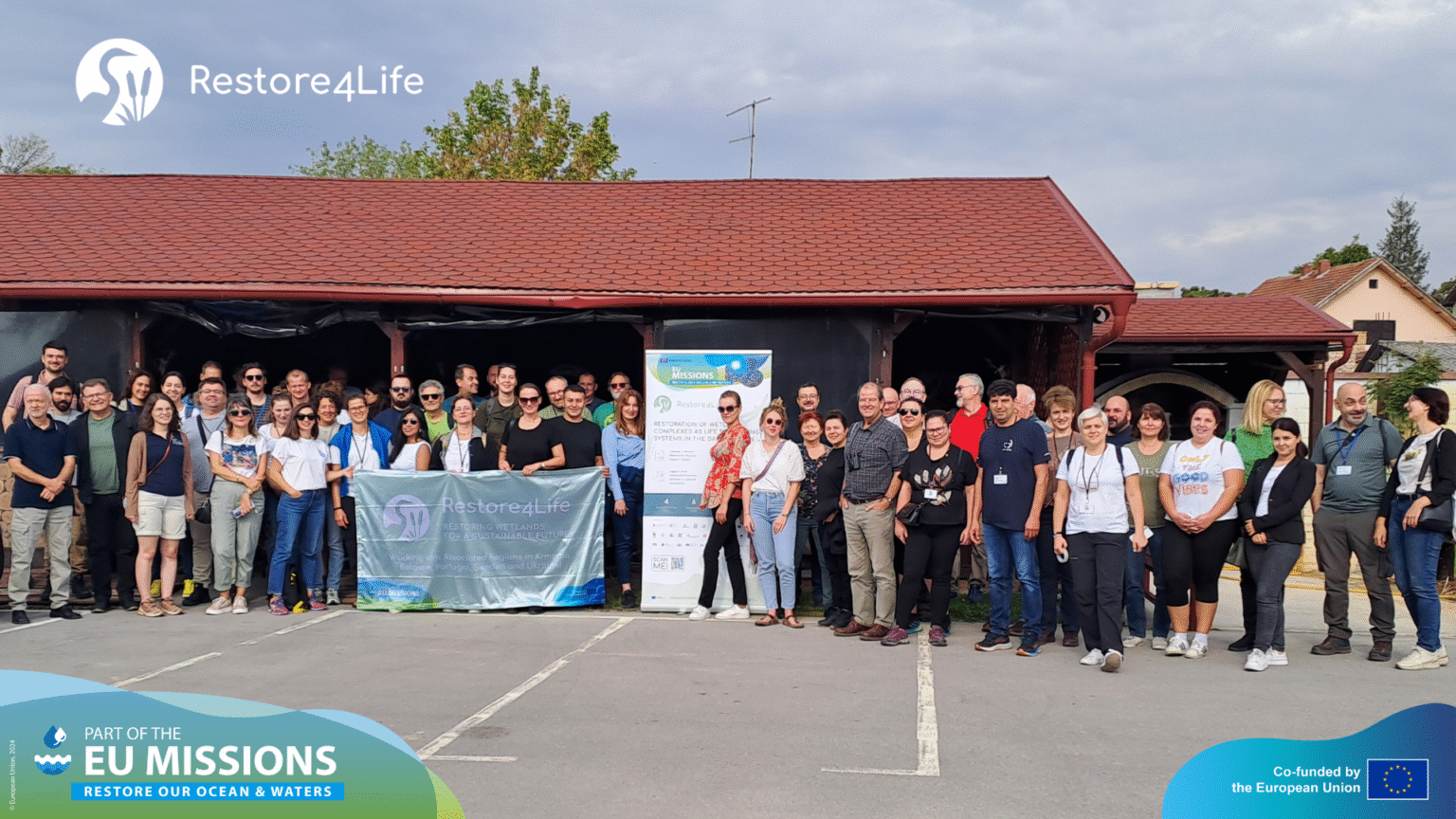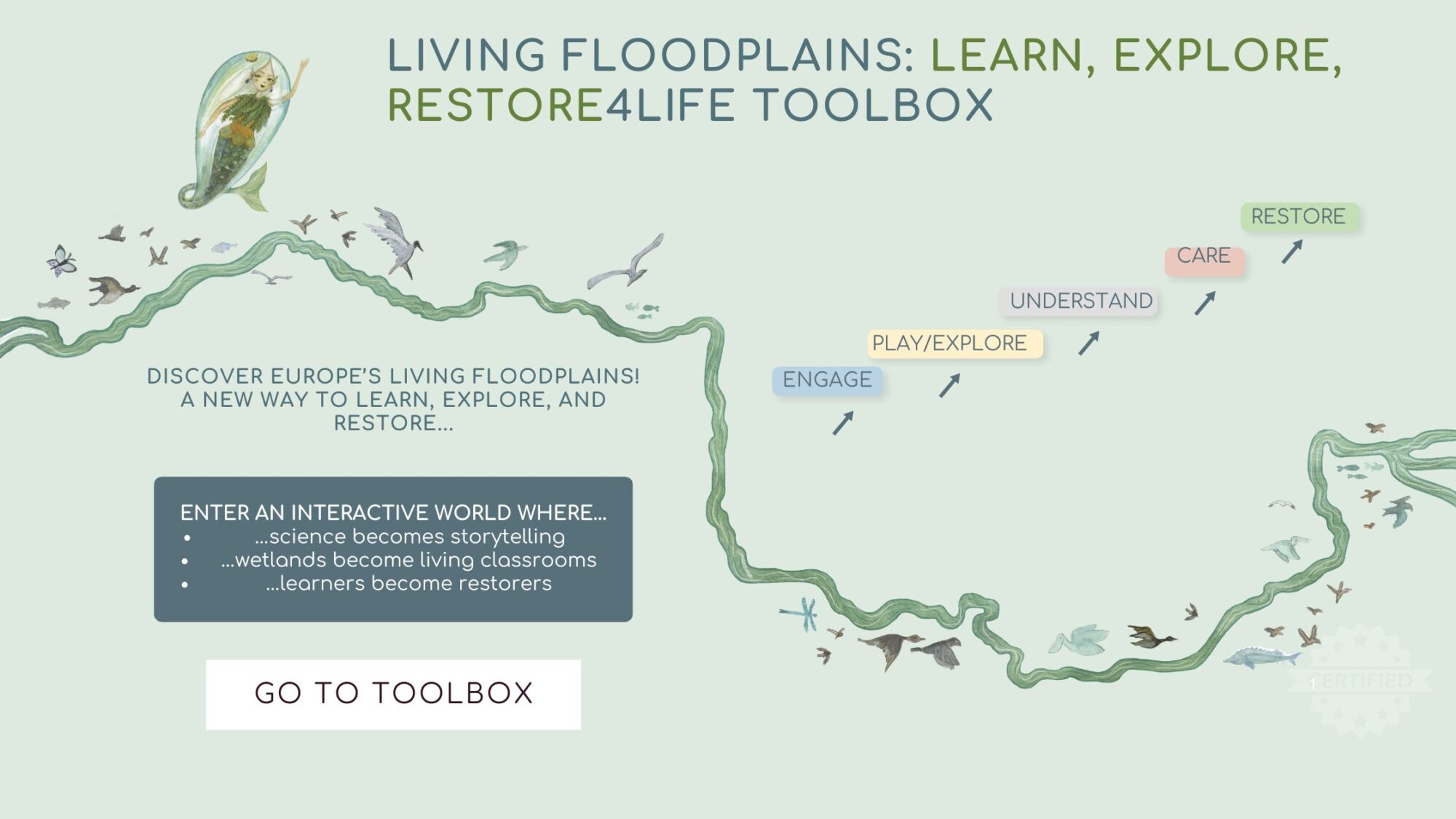
The Restore4Life consortium met last week, between 23-26 September for its General Project Meeting, hosted in Novi Sad, Serbia.
The meeting began with a significant boost of support on its opening day. Sara Pavkov, Minister of Environmental Protection and Vanja Petković, Member of the City Council in charge of Ecology, Energy Efficiency and Environmental Protection attended and officially kicked off the event. This high-level presence underscored the national and regional importance of the project’s mission.
Three Days of Deep Dive and Collaboration
Following the official launch, the consortium plunged into three full days of intense work. The agenda was packed with plenary sessions allowing partners to share updates, report on progress, and align future activities. A central feature was a poster session that filled the room with over 15 visual presentations, promoting knowledge-exchange and technical discussions among the diverse group of experts.
Crucially, the meeting served as a forum for strategic development. Associated Regions met directly with the Implementation Sites they are paired with. They engaged in discussions on how to best support each other, leveraging on-the-ground experiences and policy expertise to enhance restoration outcomes. The final sessions were dedicated to outlining next steps and upcoming activities, ensuring the energy from the meeting translates into concrete action across Europe.
The Field Day: Invasive Species, Citizen Science, and Conservation Challenges
One of the most dynamic and memorable parts of the meeting was the field day, which took the consortium out into a natural reserve for a hands-on learning experience.
In the field, participants engaged in rich discussions on practical challenges, including securing long-term funding and the critical task of involving specific stakeholders. A major point of focus was dealing with invasive species. The team explored innovative, nature-based solutions, such as using cows for grazing as a management tool. This led to a vital conversation about the importance of building relationships with local farmers to ensure a sustainable and collaborative approach to reserve management.
The field visit also served a practical function: the consortium had the opportunity to test the Wetland4Life citizen science app. This real-world test allowed the team to refine specifications and address any questions, moving the app closer to its public launch and ensuring it will be a useful tool for engaging citizens in wetland monitoring.
The Novi Sad General Project Meeting provided a crucial platform for both strategic alignment and hands-on learning. The consortium partners left Serbia feeling energized and equipped with a clear understanding of what is yet to come. With goals defined, challenges addressed, and collaboration strengthened, they are fully focused on the next steps required to deliver tangible, lasting results in bringing life back to Europe’s wetlands.
The Novi Sad General Project Meeting provided a crucial platform for both strategic alignment and hands-on learning. The consortium partners left Serbia feeling energized and equipped with a clear understanding of what is yet to come. With goals defined, challenges addressed, and collaboration strengthened, they are fully focused on the next steps required to deliver tangible, lasting results in bringing life back to Europe’s wetlands.

